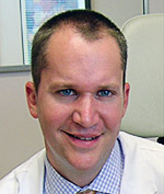Personalized Medicine Gives Rise to New Ethical Questions
There are risks to privacy and informed consent embedded in the many exciting discoveries of personalized approaches to medicine. These risks vary greatly.
Paul R. Helft, MD

After, the recent annual meeting of the American Society of Clinical Oncology in Chicago, anyone who has worked in the world of clinical oncology for more than 10 years is likely to be struck by the palpable sense that we stand at a great crossroads. The many years of hard labor in laboratory and discovery science are bearing real fruit and, as a non-basic scientist, I have this sense that our understanding of the cancers we have treated in such rudimentary ways is about to change forever, as each new correlative discovery seems to open up doors not only in the disease in which it is elucidated, but also in diseases that we would have considered to be worlds apart. We have begun to treat cancers arising from disparate organs in like ways as we discover shared oncogenic mechanisms.
However, the exciting new vistas in cancer treatment that are opening before us are accompanied by a host of new, sometimes vexing ethical questions.
There are risks to privacy and informed consent embedded in the many exciting discoveries of personalized approaches to medicine. These risks vary greatly. For example, gene profiling of variation in drug metabolism may represent very low-risk genetic information, since in many cases the information may not have implications beyond how the individual handles the drug in question. On the other hand, diagnostic information about intractable, hereditary genetic disease falls at the other end of the spectrum of risk. Consent for diagnosis of the “riskiest” situations probably requires full genetic counseling and high-level privacy protections.
Consent for drug metabolism genotyping may only require standard informed consent between clinician and patient. Are we prepared to handle such increased complexity of clinical interaction around informed consent processes?
Personalized medicine (from discovery to the clinic) will be expensive, extremely expensive. Because of the inherent costs of sophisticated scientific discovery, our approaches may be limited to social groups that are the most frequently studied and, invariably, the groups will be in high income countries. This poses risk to more marginalized groups and populations. It may thus increase, rather than improve, disparities.
There are questions as well regarding the rapidly expanding complexity of cancer treatment. It has historically been quite difficult to keep up with state-of-the-art treatment paradigms, even when our notions of cancer and cancer biology were relatively simple. How will we keep up now? We will likely become increasingly dependent on pre-specified pathways and consensus statements as the complexity of treatment begins to outpace any individual’s ability to remain an expert in every type of cancer. Should we all become disease-specific experts, as those of us in academic oncology are currently? How will we assure that consensus statements remain fair and unbiased as their influence grows even further?
Finally, Rachel Lindor and others have raised the questions of the legal risks that the era of personalized/genomic/genetic medicine will induce. These include such issues as failure to warn of genetic predisposition to cancer once identified, failure to refer for genetic testing for gene-drug interaction, failure to use genetic marker to tailor treatment, premature utilization of genetic test to tailor treatment, failure to disclose genetic risk to a patient’s family member, and breach of confidentiality for unauthorized disclosure of a patient’s data, among others. It might be a good time to be a lawyer.